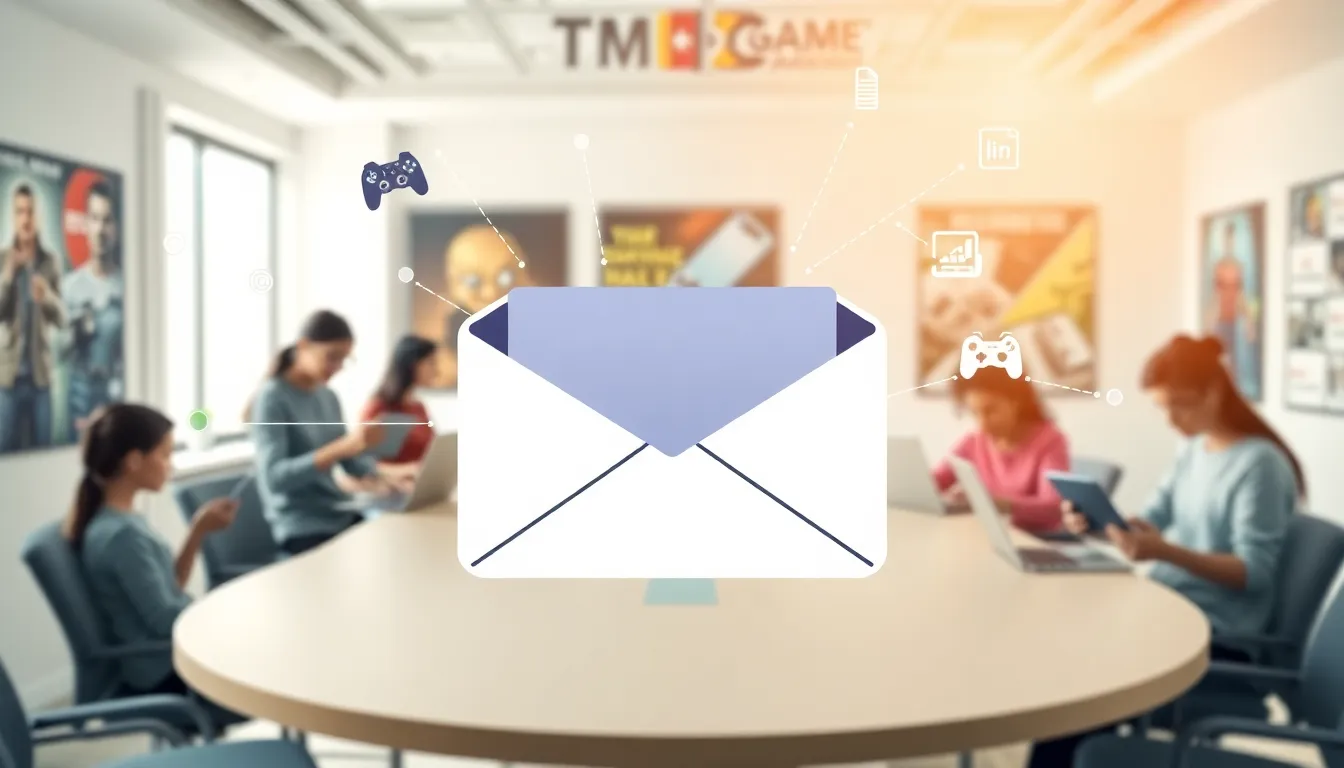Ever tried crafting the perfect gaming experience but got lost in a sea of emails? If so, you’re not alone. In today’s digital landscape, emails serve as the backbone of communication, especially in the gaming world. Imagineer Games, with its rich interactive platforms, thrives on effective email strategies. But what happens when the inbox starts to feel like a black hole? Don’t worry, we’ve got you covered. Whether it’s reaching out for support or collaborating with fellow gamers, this article reveals everything you need to know about emails in the gaming universe. Let’s jump into the details and make sure your inbox works as hard as you do.
Table of Contents
ToggleUnderstanding the Role of Email in Gaming

Email communication is indispensable in the realm of gaming, serving myriad functions that connect developers, players, and other stakeholders. Think of emails as the letters of the digital age, facilitating interactions that keep players engaged and informed. From newsletters detailing recent updates to announcements about upcoming games, emails help in nurturing a community. Also, imagineer games often use emails to push critical alerts about gameplay issues or new functionalities, ensuring that players are always in the loop. The frequency and format of these emails can vary, but their importance remains constant in enhancing gamers’ experiences.
Types of Emails Used in Gaming
Several types of emails commonly circulate in the gaming world, each designed for specific purposes.
- Newsletter Emails: These usually contain updates about new game features, events, and promotions. Players eagerly anticipate these, especially if exclusive goodies are on the line.
- Customer Support Emails: Whenever gamers face hiccups, these emails function as lifelines. Support teams respond promptly to address inquiries, ensuring players don’t feel abandoned in their adventures.
- Feedback Requests: Game developers consistently seek improvement, and what better way to do this than by reaching out to the player base? Feedback emails invite players to share their experiences, enhancing future gaming iterations.
- Promotional Emails: These flashy communications often highlight special offers or upcoming titles. Imagineer Games excels in using these to drum up excitement and keep the player community engaged.
Creating an Email Address for Imagineer Games
Establishing an email address for Imagineer Games is a simple yet vital process. First and foremost, select a reliable email service provider, such as Gmail or Outlook. Next, create a username that reflects your gaming persona or interests, ensuring it’s easy to remember. A catchy email address can add a personal touch and invite communication. Also, consider incorporating relevant keywords related to gaming, as this can enhance your email’s visibility. Once the email is set up, ensure to protect it with a strong password, steering clear of common phrases. This crucial step safeguards your gaming assets and personal information from potential threats. After finalizing these steps, go ahead and start connecting with the Imagineer community.
Best Practices for Email Communication
When engaging through emails, particularly in the gaming community, adhering to certain best practices can significantly enhance communication quality. First, start with a clear subject line: this sets the tone and makes your email more likely to be opened. Maintain a friendly yet professional tone throughout the message, ensuring brevity to grab attention without overwhelming the reader with excessive information. Bullet points can be useful here, especially when listing features or issues. Be sure to include a call to action, guiding the recipient on what steps to take next, be it providing feedback or asking questions. Finally, always double-check for grammar and spelling errors. A polished email reflects respect for the recipient’s time and attention.
Common Issues and Solutions
Even though the convenience of email communication, several common problems can arise. One frequent issue is emails landing in spam folders. To combat this, ask recipients to whitelist your domain or ensure that your emails are designed to bypass filters. Another common frustration involves delayed responses. Players can become impatient, particularly when dealing with technical glitches. To remedy this, it’s beneficial to set an expectation for response times, addressing this upfront in your initial email. Miscommunication is also a prevalent issue, particularly within complex gaming topics. Hence, always prioritize clarity, providing context where necessary. Similarly, be ready to send follow-up emails if you don’t receive a timely reply, gently reminding the recipient of your initial message.